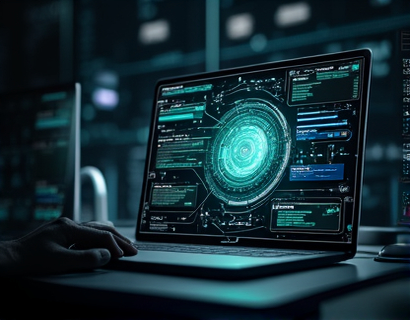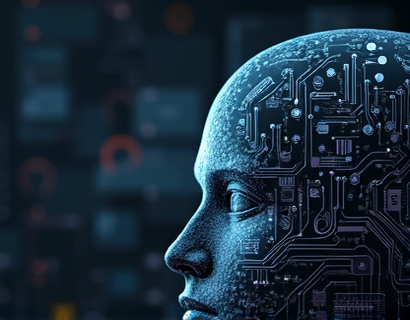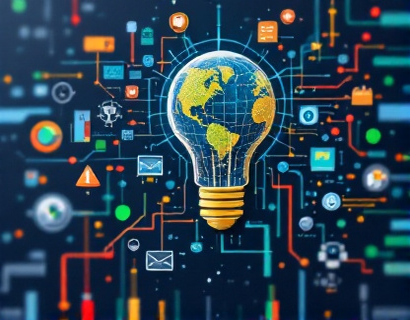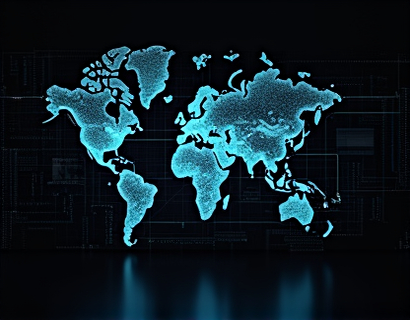Maximizing Digital Efficiency: Harnessing AI and Crypto for Enhanced Productivity Solutions
The integration of artificial intelligence (AI) and cryptocurrency into digital ecosystems is revolutionizing the way we approach productivity and task management. This synergy offers unprecedented opportunities for enhancing efficiency, streamlining workflows, and redefining the boundaries of what is possible in the modern digital landscape. As tech-savvy innovators and early adopters continue to explore these advanced technologies, the potential for transformative change becomes increasingly evident.
AI, with its ability to process vast amounts of data at speeds unattainable by human counterparts, is becoming an indispensable tool in optimizing digital workflows. Machine learning algorithms can analyze patterns, predict outcomes, and automate repetitive tasks, freeing up valuable time for more strategic and creative endeavors. When combined with the decentralized and secure nature of cryptocurrency, the possibilities for creating robust, efficient, and user-centric productivity solutions expand exponentially.
One of the key areas where AI and cryptocurrency intersect is in the realm of smart contracts. These self-executing contracts with the terms directly written into code can automate and enforce agreements without the need for intermediaries. In a productivity context, smart contracts can facilitate seamless transactions, ensure compliance with predefined rules, and provide transparent tracking of tasks and milestones. This not only reduces administrative overhead but also minimizes the risk of errors and disputes.
Another significant application is in the domain of identity verification and access control. Cryptocurrency-based identity solutions can provide secure and decentralized methods for verifying user identities, ensuring that only authorized individuals access sensitive information or critical systems. This enhances security while maintaining efficiency, as users do not need to navigate complex authentication processes.
AI-driven chatbots and virtual assistants, powered by blockchain technology, can offer personalized support and assistance to users. These AI entities can operate independently, learning from interactions and improving over time. They can manage schedules, prioritize tasks, and even predict user needs based on historical data, all while maintaining a high level of privacy and security thanks to blockchain's immutable ledger.
The use of blockchain in data management also plays a crucial role in enhancing digital efficiency. By storing data in a decentralized manner, blockchain ensures that information is not only secure but also easily accessible and verifiable. This is particularly beneficial for collaborative projects where multiple parties need to share and update data in real-time. AI can further optimize this process by analyzing data patterns, identifying redundancies, and suggesting improvements to data structures.
In the context of cloud computing, the combination of AI and cryptocurrency can lead to more efficient resource allocation and cost management. AI algorithms can predict usage patterns and optimize resource distribution, ensuring that computational power is used where it is most needed. Cryptocurrency can facilitate micropayments for cloud services, allowing users to pay only for the resources they consume, thus reducing waste and lowering costs.
Furthermore, AI can enhance the security of cryptocurrency transactions, which is paramount in a world where digital assets are becoming increasingly valuable. Machine learning models can detect anomalies and potential fraud in real-time, providing an additional layer of protection. This is particularly important for businesses that rely on cryptocurrency for transactions, as it helps maintain trust and reliability in their operations.
The integration of AI and cryptocurrency also opens up new avenues for decentralized finance (DeFi) applications. DeFi platforms leverage blockchain technology to offer financial services such as lending, borrowing, and trading without traditional financial intermediaries. AI can optimize these services by analyzing market trends, assessing risk, and automating trading strategies. This not only increases efficiency but also makes financial services more accessible to a broader audience.
In the realm of content creation and management, AI-powered tools can generate, edit, and optimize content with minimal human intervention. When paired with cryptocurrency, these tools can create unique digital assets, such as NFTs (non-fungible tokens), which can be used to represent ownership and provenance. This adds a new dimension to content monetization, allowing creators to directly benefit from their work in a transparent and secure manner.
For project management, AI and cryptocurrency can streamline workflows and enhance accountability. AI-driven project management platforms can assign tasks based on team members' availability and expertise, track progress in real-time, and provide insights into potential bottlenecks. Cryptocurrency can be used to incentivize performance, with tokens awarded for completing tasks or reaching milestones. This gamification of work not only boosts motivation but also provides a clear and transparent reward system.
In the area of customer service, AI chatbots can handle a wide range of inquiries and support requests, reducing the burden on human agents. When integrated with cryptocurrency, these chatbots can process payments and issue refunds automatically, ensuring a smooth and efficient customer experience. The use of smart contracts can further ensure that customer service standards are met, with penalties or rewards tied to performance metrics.
The educational sector can also benefit significantly from the combination of AI and cryptocurrency. AI can personalize learning experiences by adapting to each student's pace and style, providing tailored resources and feedback. Cryptocurrency can facilitate the creation of decentralized educational platforms where content creators are rewarded for their contributions, ensuring a continuous flow of high-quality educational materials.
In summary, the convergence of AI and cryptocurrency is paving the way for a new era of digital efficiency. By leveraging the strengths of both technologies, we can create more secure, transparent, and user-friendly productivity solutions. As more organizations and individuals embrace these innovations, the potential for transformative change in various industries becomes increasingly tangible. The future of digital productivity is bright, and the path forward is clear.











































